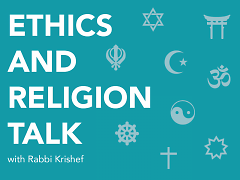But, we have a passionate side to our friendship. We don’t want to have sex. We just enjoy hugging and making out a little. Why is wrong if we love each other and have no intention to cross the line? I think it is unreasonable and unhealthy to expect people to stifle their feelings and keep their distance if they care about each other. But I also care deeply about what God want and I am in conflict with myself. What can I do?
R. Scot Miller, who writes from an Anabaptist and Quaker Christian perspective, responds:
If your relationship is fulfilling and it allows for you both to grow and support each other, it is truly a blessing that many don’t enjoy. If you are abstinent from intercourse, the matter of intimacy is a private matter that, like marriage, is concerned with far more than the physical, and more concerned with partnership that reflects what marriage should be.
As for God’s blessing, your question suggests why marriage or intimate relationships should not necessarily be a private matter. Individuals who have difficulty discerning divine will should seek a religious community that practices binding and loosing in its relationships with one another and God. (Matt. 18: 15-22) When we gather with others, we find deeper meaning in intimacy, abstinence, marriage, and other expressions of human sexuality. Marriage should never occur outside of a community of faith. Instead, relationships should be a reflection of what a congregation or denomination believes is representative of God’s will, and made evident by corporate practices.
My response to your question assumes an absence of an authority that has an appreciable response regarding your relationship. If you do not belong to a community of faith, you are not bound to any Christian ethic. Without a church community, there is no embodied manner through which an individual gets needs met in a way which allows for obedience. Faithfulness makes sense only within a supportive community of faith. A church cannot bind one to a morality without providing the spiritual and material resources through which intimate relationship needs can be met. I wish you lasting love, and invite you to seek a congregation in which you can make decisions about faithfulness and intimacy. If you cannot find one, trust that you are blessed with an apparently healthy partnership that has good boundaries, and that you are making healthy choices.
Father Kevin Niehoff, O.P., a Dominican priest who serves as Adjutant Judicial Vicar, Diocese of Grand Rapids, responds:
What you describe is companionship, ‘when you feel a sense of closeness being with another person’ (https://www.vocabulary.com/dictionary/companionship). Since when is having a companion sinful, or something with which you must have conflict?
As long as you and your companion have agreed to the boundary of not engaging in a sexual relationship, and simply enjoy one another’s company, there is nothing inherently immoral about the relationship.
Ty Silzer, a former pastor in the Presbyterian Church in America who attends Mars Hill Bible Church, responds:
Well, this isn't Ethics & Religion & Relationship Advice Talk, but, have you considered getting married? It sounds like this friendship is more than any average friendship. In a small space you repeatedly use strong words, such as "passionate" and "feelings" which are not words used to describe everyday, platonic friendships. While I don't know specifics, you speak of this relationship as both realistic and good. I hope it would go without saying, but I would encourage you to search yourself and ask close friends who know the both of you.
Extramarital, non-sexual passion is largely absent from the ancient dialogue. Song of Solomon comes close, but it's deeply intertwined with both sex and marriage.
So this steps out of the land of prescription (scriptural rules and precepts) and into the land of wisdom. And in my experience, people prefer rules because it either allows them to embrace or blow them off as both of these actions require less wrestling and tension. As not everything is prescribed or denied by scripture, consider freedom as well—is God setting you (and him) free down this path? But consider this freedom through the lens of wisdom. If you remain in your current state (‘friends’), does giving into your passions, as enjoyable as they are, set you up for not crossing this line you want to respect?
This column answers questions of Ethics and Religion by submitting them to a multi-faith panel of spiritual leaders in the Grand Rapids area. We’d love to hear about the ordinary ethical questions that come up on the course of your day as well as any questions of religion that you’ve wondered about. Tell us how you resolved an ethical dilemma and see how members of the Ethics and Religion Talk panel would have handled the same situation. Please send your questions to [email protected].
The Rapidian, a program of the 501(c)3 nonprofit Community Media Center, relies on the community’s support to help cover the cost of training reporters and publishing content.
We need your help.
If each of our readers and content creators who values this community platform help support its creation and maintenance, The Rapidian can continue to educate and facilitate a conversation around issues for years to come.
Please support The Rapidian and make a contribution today.

